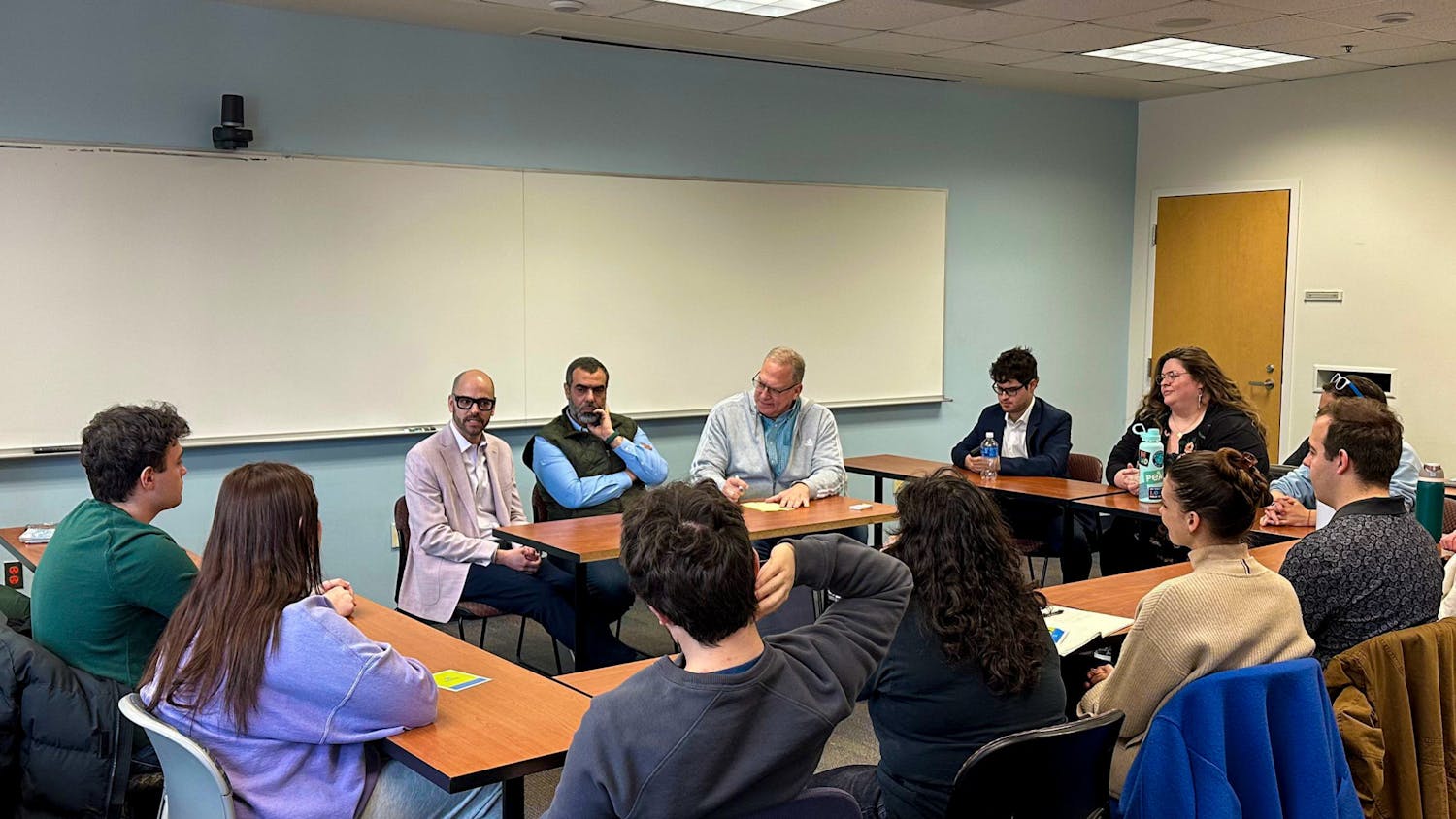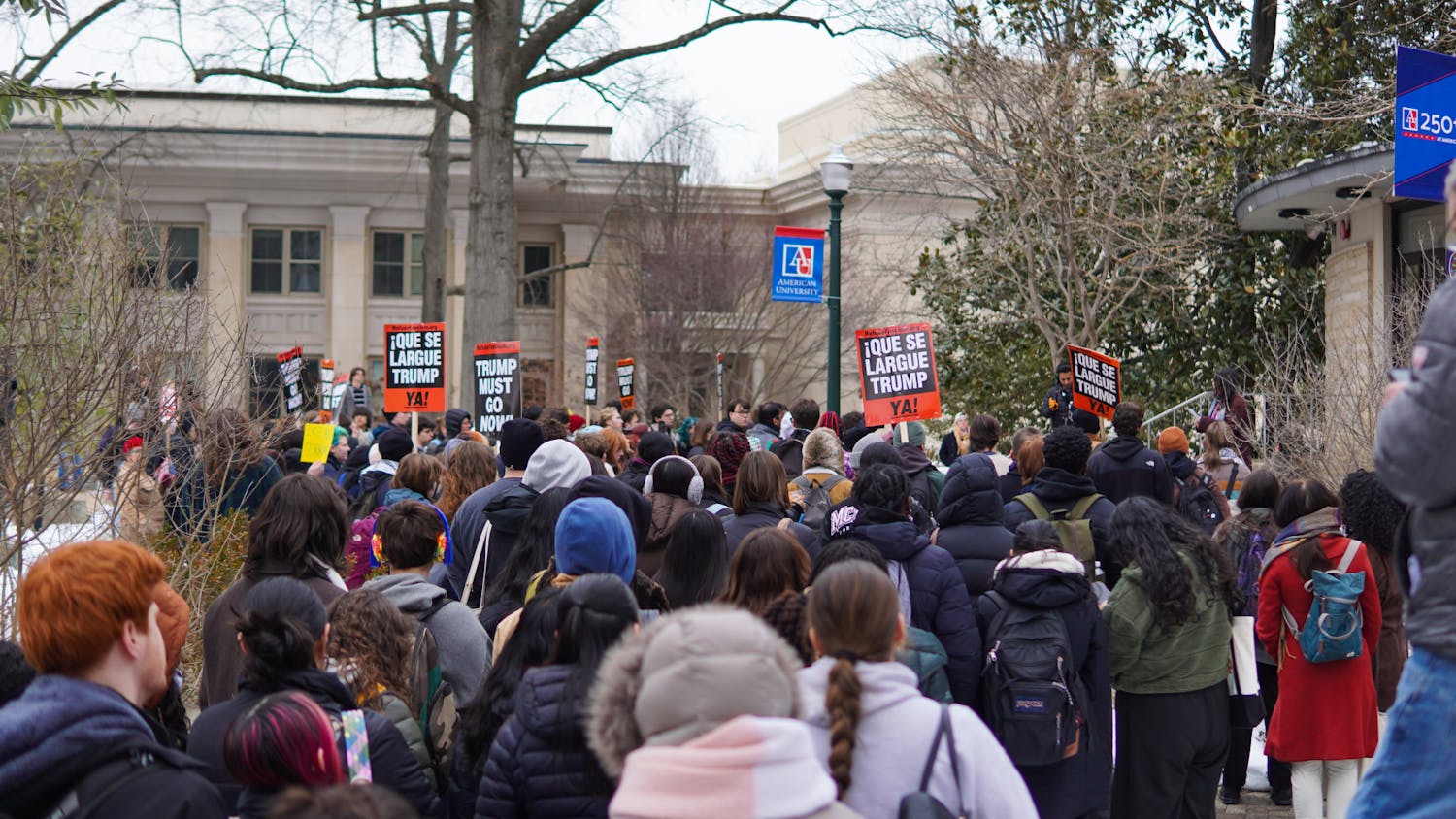Students at American University have reported seeing rats, cockroaches or other vermin around campus, but are divided on whether the issue is a major problem facing AU.
"Western Pest Services is on campus every Tuesday and Friday to perform routine inspections of common areas on campus both on the grounds and inside buildings," said Stephanie DeStefano, Grounds Operations coordinator for AU. "Prompt attention is given to emergency situations and their service tech checks in with our Physical Plant work control center to pick up any special work requests."
DeStefano does not consider pest control to be a big problem on campus. "Some problems do arise from time to time but once discovered, they are handled promptly," she said.
Micah Winograd, president of Leonard Hall last year and a junior in the School of International Service, received very few pest complaints.
"As president of the Leonard Hall RHA last year, there were very few student complaints concerning pests beyond roaches, ants and flies in the kitchens," Winograd said. "Wherever problems did exist, we worked do combat them as quickly and effectively as possible."
"We do have a problem with it," Derek Heiss, a sophomore in the School of International Service said. "Occasionally, I'll see some rats run across the paths on the Quad."
According to DeStefano, the grounds staff at AU performs campus cleanup every day and empties all trash containers daily to keep food sources at a minimum. Rodent bait boxes are located throughout campus and wire trashcan bases are used at the bottom of trash cans to prevent rodents chewing into them.
Heiss said that he hasn't had any problems with bugs or cockroaches, but has seen rats and, more recently, raccoons around campus. He also said it does not appear that AU is doing anything about the problem.
"They should probably contact an exterminator," Heiss said. "That may be the obvious solution, but they don't appear to be doing that now."
However, other students disagree with Heiss's analysis about the status of the problem.
"I think we should get rid of the squirrels instead," said Jessi Bautista, a sophomore in the School of Communication. Bautista said she does not have an issue with rodents because she infrequently sees rats or mice on campus.
Through the winter season, the rat population decreases because of severe weather. Rats tend to move towards warmer places to survive. Unfortunately, these places are sometimes in or near buildings, which poses a potential problem during the winter months at AU.
The Department of Health for the District of Columbia reports that there is a notable rodent control problem in the D.C. metro area. In October 2000, the health department went so far as to enforce legislation establishing "civil penalties for conditions conducive to the proliferation of the rodent population."
Under this legislation, people who knowingly allow or encourage the breeding of rats or mice may be fined. The Department of Health has also tried to enforce the legislation at food agencies in order to stop the furthering of the rodent population in D.C.
"I kind of like the rats," said Travis Stewart a junior in SOC.
Stewart said he does not see any need for the administration to act to combat pest proliferation at AU, "unless they are scaring people. Then something should be done."
However, others were not as content as Stewart to leave the rodents alone.
"The rats are foul and disgusting," said Heather Wyllie, a senior in SIS. "They run over my feet."
Wyllie said she has spotted rats repeatedly on campus. She said she has noticed rats in the alley near the McKinley building and near McDowell Hall, especially during nighttime hours. Wyllie also suggested the AU administration put out traps to solve this problem.
Students can take matters into their own hands by stopping unpleasant situations with cockroaches and rats before they begin. For instance, washing dirty dishes immediately after using them and covering food will prevent more pests from surfacing, the Department of Health said.
The Department of Health suggests storing food and garbage in tight containers, and cleaning up kitchen areas after they are used. However, students should be not be as concerned with rats in the buildings - the screens on windows and the cement foundations of the dormitories will help thwart the infiltration of rats into the residence halls, according to the Department of Health website.
"I would advise students to promptly report any pest control concerns to the 2FIX line or x2349," DeStefano said.




